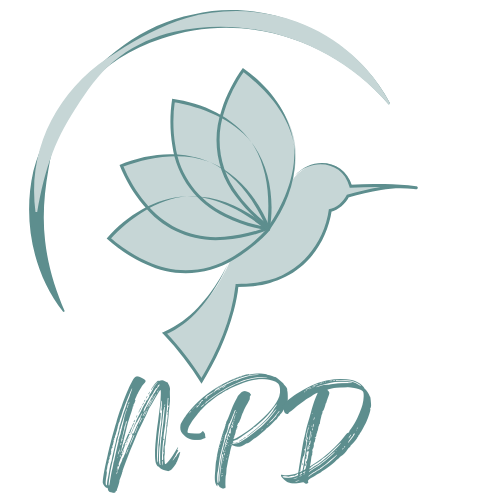Narcissistic Personality Disorder: the platform dedicated!

NPD: Sympthoms,causes, treatment, books, therapists, articles…



NPD:Narcissistic Personality Disorder
People who suffer from a narcissistic personality disorder (NPD) feel a sense of entitlement that can lead to the ultimate goal of winning the admiration and adulation of others. They have an extreme sense of self-importance, and they think they are better compared to other people in life.
If you are suffering from this disorder, this platform will help you understand your symptoms and how to cope with them.

NPD Platform Services
What is a narcissistic personality disorder?
A narcissistic personality disorder is a mental disorder in which patients have an increased sense of their self importance, a deep demand for admiration, and a lack of understanding for others. However, behind this attitude of ultra confidence lies an extremely weak self-esteem that is defenseless to the smallest amount of criticism.
People with NPD are typically very thin-skinned, defensive, and highly sensitive to any perceived criticism — even from a distance. They may also be exploitative, envious, and entitled. In other words, they tend to emphasize their achievements and talents instead of the needs of others.
People with NPD often are preoccupied with personal adequacy, power, brilliance, beauty, or talent. They believe they’re superior human beings and try to associate themselves with people and things that reinforce this grandiose self-view.
The disorder affects an estimated 5 percent of the U.S. population, according to the National Institutes of Health (NIH). Narcissism has been diagnosed more often in men than women — by two to one — but some experts believe this reflects a bias in diagnosing rather than a true gender difference.
Pathological Narcissism Causes

Genetics
Genetics may play a role in developing NPD. If one of your parents has narcissism, there is an increased chance that you will develop the disorder too.

Brain differences
Brain chemistry may also be to blame for narcissism. Differences in the brain’s structure and function have been linked to NPD, although more research needs to be done on this link.

Childhood Trauma
Childhood trauma has been shown to increase the risk of developing NPD later in life. This trauma could include physical abuse, sexual abuse, neglect or abandonment by caregivers, or any other traumatic event that leaves lasting emotional scars on a child’s psyche.

Symptoms of NPD
The following are the symptoms of NPD in adults:
- Grandiose feeling of self-importance
- Is occupied with fantasies of limitless power, success, beauty, brilliance, or ideal spouse
- Believe she or he is “special” and can be understood only by other special people
- Requires too much admiration
- Has a feeling of entitlement
- Is exploitative interpersonally, i.e., takes benefits of other people to fulfill her or his own needs
- Lacks empathy: is reluctant to identify or recognize with the needs and feelings of other people
- Is frequently envious of other people or believes that people are envious of her or him
- Shows haughty, arrogant attitudes or behaviors
Diagnosing Pathological Narcissism
The Diagnostic & Statistical Manual for Mental Disorders (DSM-5) is the most widely used diagnostic tool for mental health professionals in the United States. It contains a list of symptoms that characterize each disorder and a set of codes that can be used to diagnose individuals.
The following criteria must be met before someone can receive a diagnosis of narcissistic personality disorder:
- A grandiose feeling of self-importance (e.g., exaggerating talents and achievements, expecting to be known as superior without adequate achievements).
- Preoccupation with dreams of power, success, power, beauty, brilliance, or ideal lover.
- The belief that she or he is unique and “special” and can be recognized only by other high-status or special people (or organizations).
- Requires too much admiration.
- Has a very strong feeling of entitlement, i.e., unreasonable needs of particularly favorable treatment or unquestioned compliance with her or his expectations.
- Is interpersonally exploitative; i.e., takes benefits of other people to fulfill her or his own desires.
- Lacks empathy: is reluctant to identify or understand with the needs and feelings other people; uses others to achieve his or her own ends.

Treatment of NPD
Treating narcissistic personality disorder can be difficult because the person with NPD often does not want to change. In fact, they may be so convinced of their own superiority that they don’t see anything wrong with their behavior. However, treatment options do exist and can help those who suffer from NPD learn to manage their symptoms and improve their relationships with others.
Treatment for narcissistic personality disorder usually involves psychotherapy or talk therapy. This can include:
Cognitive-behavioral therapy (CBT): CBT helps people change their negative thinking and behavior by recognizing how their thoughts affect their emotions, actions, and relationships.
Dialectical behavior therapy (DBT): DBT teaches skills to help people manage intense feelings and regulate their behavior.
Family therapy: Family members can play an important role in a person’s recovery from NPD by supporting them during treatment and helping them develop healthy relationships outside of the family system.
The most effective way to treat narcissistic personality disorder is by learning healthy ways of dealing with emotions and relationships through therapy or group counseling sessions. A therapist might also provide recommendations for books or online resources that teach these skills so patients can continue practicing them after leaving treatment.
Contact
+39 3911349567
info@universoolistico.it


